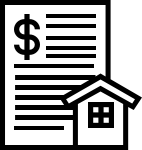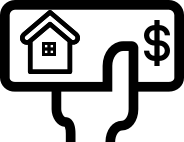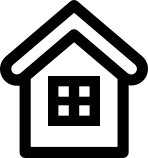Legal FAQs for Renters in Minnesota
This page has local legal information on residential (not commercial) renters’ issues. It is not legal advice, and you should check with your local legal aid and courts for current information.
This page was last updated on Sep 14th, 2022. It was reviewed by our volunteer attorney experts.
Table Of Contents
Jump to the section that matches your situation
Emergency Protections during COVID
Are there any special protections for Minnesota renters during the emergency? How long do they last?
The Minnesota eviction moratorium has ended, and most protections have ended.
Renters who have applied for rent assistance through Rent Help MN are protected until September 13, 2021. Landlords cannot file for eviction against tenants who applied for rental assistance until then.
Landlords may now try to sue tenants to evict them. If you are worried about an eviction, reach out as soon as possible to your local legal aid group. The lawyers may be able to help you find protections and services to deal with your eviction.
Earlier Protections
Earlier, Minnesota Governor Tim Walz ordered a suspension of most evictions during the COVID-19 peacetime emergency period. It went into effect on March 24, 2020 and ended in 2021.
What do the protections mean for Minnesota renters?
If you do not have local protections, then in Minnesota:
- Your landlord can still give you a notice to quit.
- Your landlord can still file an eviction claim against you -- unless you have applied for Rental Assistance at Rent Help MN. If you have applied for help, your landlord can't file a lawsuit against you until September 13, 2021.
- The court may still hear an eviction case against you.
- The court can still issue a new order, judgment, or writ of eviction against you.
- Law enforcement can still enforce an existing eviction order against you, to remove you from your home.
Do I still have to pay rent during the emergency?
Yes, Minnesota renters still need to pay rent during the emergency.
You may have been protected from eviction, but now that those protections are over, you may be sued and you still owe all your rent.
If you cannot pay rent, you should:
- Apply for rental assistance at Rent Help MN to protect yourself and get funding for back-rent and housing costs.
- Communicate with your landlord: Send a written letter or email to your landlord as soon as possible. Explain why you cannot pay the rent because of COVID-19 impact. You can also try to negotiate with your landlord to make a payment plan or get a temporary rent reduction. Get help here for drafting and mailing a letter to your landlord. You can also use this letter-writing tool here.
- Get written records of all communication: Keep copies of any letter or email you send, and any responses from the landlord. Keep receipts for any payments you make. If you make a payment plan or rent agreement, make sure to get it in writing.
- Keep proof of COVID-19's impact on you: Collect documents about your COVID-19-related employment problems, health care issues, or other issues that affect your ability to pay rent. This includes letters from your employer, doctor, insurance provider, child care provider, schools, etc.
- Tell your landlord in writing about any repair problems: Keep a copy of this writing and take pictures or videos of any repair problems. You might be able to argue that you owe less rent because of the repair problems. See below for more information about repairs during the public health emergency.
- Check for help: Contact your Legal Aid office for advice and to see if they can help.If you need financial help for housing costs, you may be able to get help.
Can my landlord evict me during the emergency?
Minnesota renters can be evicted now that the emergency eviction suspension has ended.
Since the emergency period ended in Minnesota, landlords can start evictions again, and law enforcement can begin to enforce eviction orders to remove renters from their homes.
Renters who have applied for financial assistance at Rent Help MN have protection against an eviction lawsuit through September 13, 2021.
If you get a notice to leave, lease termination, or eviction court papers, reach out for legal help.
Can my utilities be shut off during the emergency in Minnesota?
Some Minnesota renters may be protected against utility shutoffs during the emergency. It depends on where you live.
Utility bills are still due as normal, but some renters will be protected from shutoffs if they are not able to pay these bills.
Some Minnesota utility companies are stopping all shutoffs during the emergency. Some local cities have ordered that no resident's water can be shutoff. Check here for more details.
Landlords are never allowed to shut off a renter's utilities to try to force the renter out. This is illegal. Learn more about illegal utility shutoffs here. If this happens to you, call the police and reach out to a lawyer for help.
What if I need repairs?
Tell your landlord in writing about any repairs you need.
Renters always have the right to live in a healthy and safe home. The emergency may delay your landlord's ability to make repairs. You should always call your landlord to make the repairs as soon as possible. Always follow up the call with a request in writing by paper, email, or text message. You can also call the city you live in to report the repair problems.
Repairs could be for problems with things like:
- Running water or hot water
- Heat
- Stove, refrigerator, or oven
- Electricity
- Bathroom use
- Missing doors, locks, or windows
- Pests
You should always send the landlord a request in writing to make any repairs as soon as possible. Keep a copy of this writing for your records.
If your landlord does not make emergency repairs within 24 hours, you can file an emergency repair court case. All Minnesota courts should be hearing emergency repair cases right now. Learn more about emergency repair cases here.
If your landlord does not make normal repairs within 14 days, you can try to file a normal repair court case. Some Minnesota courts might start hearing these cases soon. Learn more about repair cases here.
Can I break my lease during COVID-19 in Minnesota?
You may be able to break your lease if you can come to an agreement with your landlord.
Your lease is still in effect during the emergency period.
You can talk to your landlord to see if they will agree to let you leave early. If they agree, be sure to get the agreement in writing.
Also, you can review your lease. It may have a part that lets you end the lease early in times of financial difficulty. If your lease has this kind of part, you might be able to break the lease (in some cases penalty-free). If you are unsafe at home, you can break your lease early. You have to follow some steps to do this. Learn more here.
What do I do if my landlord tries to evict me?
Contact a legal help organization to help defend yourself.
It is illegal for your landlord to evict you without first going to court and getting an eviction order. A landlord cannot lock you out, take off the door, turn off utilities, or do something else to make you leave. To remove you from your home, a landlord must file an eviction court case, win the case, and give the sheriff a paper called the writ of recovery.
Legal aid and other groups might be able to help you with legal advice, writing court papers, or going to court with you. Learn more about illegal lockouts here.
You can also file a complaint with the Attorney General’s Office by using this online form.
Are eviction cases still moving through Minnesota courts?
Eviction hearings in Minnesota courts have resumed. Courts may schedule these cases by phone, in-person, or by video call.
Check with the Minnesota state courts to find more information
What if I am in public housing or get help from Section 8 or another program?
It depends on the kind of housing or program. Some landlords and housing authorities are still trying to terminate vouchers and evict people during the public health emergency.
Call Legal Aid if you live in public housing or get help through Section 8 or another program.
What other rules does the landlord have to follow during the public health emergency?
A landlord can never discriminate against you because of your:
- Race
- Family Status (having kids or being pregnant)
- Disability
- Sex
- Public Assistance (MFIP, GA, SSI, etc.)
- National Origin
- Color
- Sexual Orientation
- Age (St. Paul only)
- Religion
- Gender identity
- Creed (beliefs)
- Marital Status (being single or divorced)
Discrimination can happen during a housing search, while you are a renter, or when a landlord tries to evict you. Learn more here.
If you are a person with a disability, you still have the right to ask the landlord to change their rules, policies, or practices to accommodate your disability. Learn more here.
Go to LawHelpMN to learn more about your rights as a renter in Minnesota.
Did I have eviction protections under the CARES Act?
Renters in 3 categories have special national protections against being evicted during the Emergency Period of March 27, 2020 to July 24 or 25, 2020. These national protections add onto any state and local protections you have.
Do you fit in any of these 3 categories?



If you are a renter in one of these 3 categories, the federal CARES Act section 4024 gives you these protections. (Remember, these protections add onto any state and local protections you have)
- Your landlord cannot file a new eviction lawsuit against you for not paying your rent during the Emergency Period. They can still evict you for other behavior, like drug abuse, other criminal activities, or other lease violations.
- Your landlord cannot charge you new fees or penalties for not paying your rent during the Emergency Period.
- After the Emergency Period ends, your landlord may not be able to evict you immediately.(Different states interpret the protections ending on July 24 or 25. Check with local lawyers to see about your state). If you have not paid your rent in full during the Emergency Period, your landlord must wait until the period ends before giving you a notice to vacate. For example, they may give you a notice on July 26, and you must be allowed until at least August 25 to leave the property.
For more help on these national protections, reach out for legal and financial help here. Also, use this tool to write a letter to your landlord if you are having issues with rent or eviction.
Behind on Rent?
Who can help me with rent that I owe?
If you are behind on rent, you can get help from your local Rental Assistance program. This is a government service to help people who owe rent or utility bills.
Especially if you are behind on rent because of COVID-19 hardships, your local Rental Assistance (or Rent Relief) program can help you.
Find your local Rental Assistance program at your Get Help page here.
Am I eligible for rent relief?
Local governments set the rules about who is eligible for rent relief. Most programs focus on people who have suffered COVID-19 hardships.
You can talk to your local Rental Assistance program to learn their eligibility rules.
You may have to show your household income, or if you are on other benefits programs like SNAP.
You may also have to show that you are at risk of homelessness or eviction if you don't get rental assistance.
Check with your local Rental Assistance program to see if you are eligible.
Does immigration status matter for rent relief?
Many local Rental Assistance programs are open to everyone, regardless of immigration status. Many programs do not even ask about immigration status.
Check with your local Rental Assistance program to make sure about eligibility rules and immigration.
Can a landlord apply for their renter, to get rental assistance?
Most Rental Assistance programs let landlords apply.
Either a renter or a landlord can start the application.
The landlord will have to fill in as much information they have about the amount of money needed, and the eligibility for the program. The tenant may have to fill in the rest of the information.
Check with your local Rental Assistance program about the steps to follow to apply for rent relief.
Get Help From Local Groups
Find Local Legal Help
Find legal groups that can help you with housing problems, landlords, roommates, Section 8, domestic violence, discrimination, and more.
Find Legal ServicesFind Financial Assistance for Housing Costs
Find groups that can help you pay the rent, cover utility costs, and get other housing-related assistance.
Find Financial HelpFind Other Services to Help You
Find help with other problems, like domestic violence, health coverage, food benefits, mental health, and other issues.
Find Other ServicesState information is taken from these sources:Governor's eviction moratoriumSupreme Court orderLaw Help MinnesotaPrinceton Eviction Lab's COVID Policy ScorecardsColumbia Law School COVID-19 Eviction Moratoria analysisEnergy and Policy Institute Utility Disconnect TrackerGovernor's eviction extension 06/20
Don’t see your question here?
Ask it using this form, and we may add it to our FAQ list.